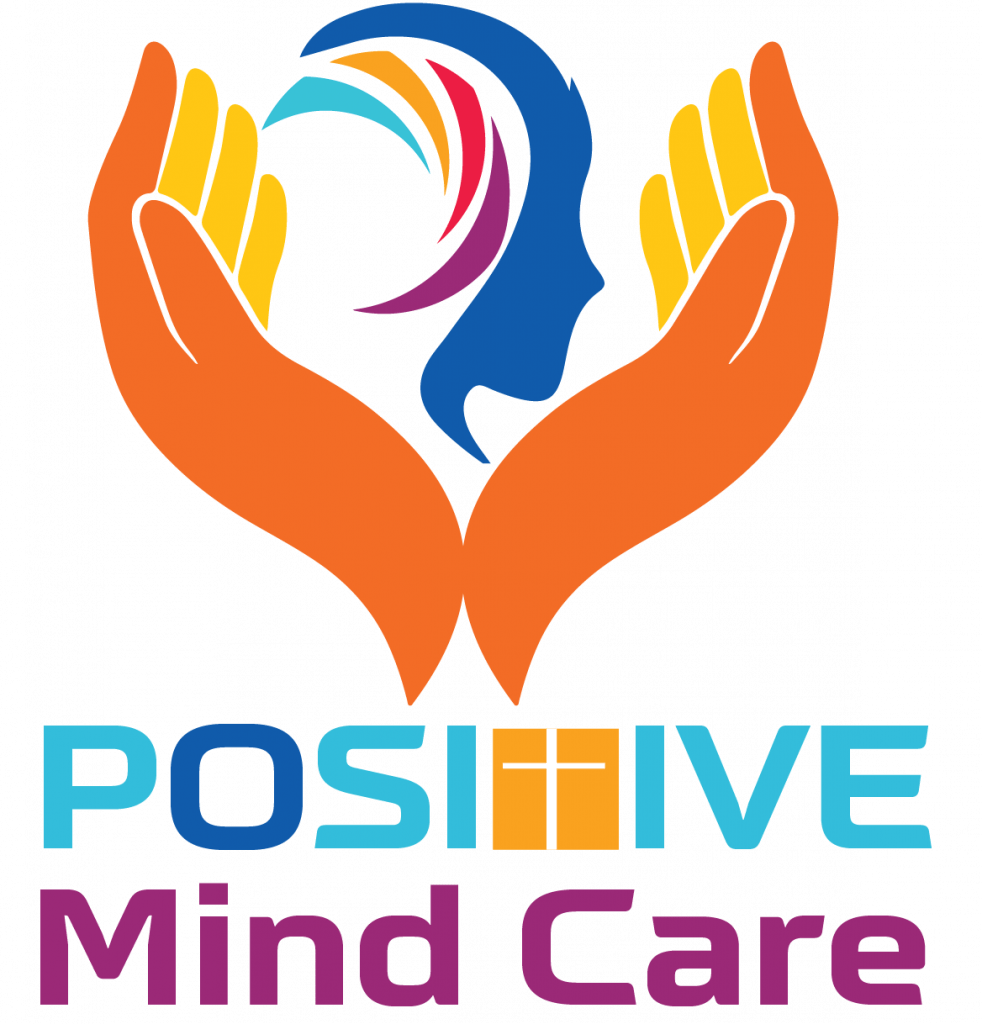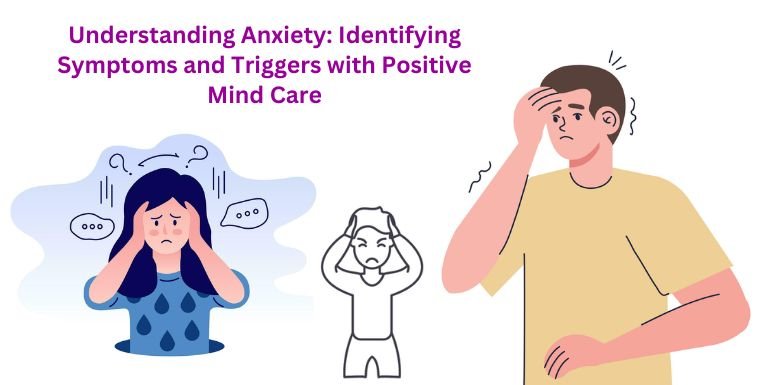Anxiety is a common mental health condition that affects millions of people worldwide. While occasional feelings of anxiety are a normal part of life, persistent and overwhelming anxiety can significantly impact daily functioning and overall well-being. Positive Mind Care is dedicated to providing compassionate support for individuals struggling with anxiety by helping them identify common symptoms and triggers. In this blog, we’ll explore the various manifestations of anxiety and how Positive Mind Care assists individuals in recognizing and managing their anxiety symptoms effectively.
Common Symptoms of Anxiety:
Positive Mind Care recognizes that anxiety can manifest in various ways, and understanding these symptoms is crucial for effective management. Some common symptoms of anxiety include:
Excessive Worry: Persistent and uncontrollable worry about various aspects of life, such as work, relationships, health, or finances.
Physical Symptoms: Physical manifestations of anxiety may include rapid heartbeat, sweating, trembling, muscle tension, shortness of breath, dizziness, or gastrointestinal discomfort.
Cognitive Symptoms: Anxiety can affect cognition, leading to racing thoughts, difficulty concentrating, memory problems, and catastrophizing or irrational thinking patterns.
Emotional Distress: Feelings of apprehension, fear, irritability, restlessness, or a sense of impending doom are common emotional symptoms of anxiety.
Behavioral Changes: Anxiety may lead to avoidance behaviors, such as avoiding social situations, responsibilities, or activities that trigger anxiety. It can also manifest as compulsive behaviors aimed at reducing anxiety, such as excessive reassurance-seeking or repetitive rituals.
Identifying Triggers of Anxiety:
Positive Mind Care emphasizes the importance of identifying triggers that contribute to feelings of anxiety. Common triggers may include:
Stressful Life Events: Major life changes, such as starting a new job, moving to a new city, or experiencing a significant loss or trauma, can trigger feelings of anxiety.
Social Situations: Social anxiety disorder may be triggered by social situations such as public speaking, meeting new people, or attending social gatherings.
Environmental Factors: Certain environments or stimuli, such as crowded spaces, loud noises, or unfamiliar surroundings, can trigger anxiety in susceptible individuals.
Health Concerns: Anxiety may be triggered by health-related concerns, including chronic illnesses, medical procedures, or fear of illness or injury.
Cognitive Triggers: Negative thought patterns, self-criticism, perfectionism, or catastrophizing can trigger anxiety by amplifying feelings of worry and apprehension.
Positive Mind Care’s Approach to Anxiety Management:
Positive Mind Care adopts a holistic approach to anxiety management, focusing on individualized care and evidence-based interventions. Through therapy, psychoeducation, and skill-building exercises, Positive Mind Care helps individuals identify and address the root causes of their anxiety. By developing coping strategies, relaxation techniques, and cognitive restructuring skills, individuals can learn to manage their anxiety more effectively and improve their overall quality of life.
Conclusion:
Anxiety can manifest in various forms, impacting individuals both emotionally and physically. Positive Mind Care recognizes the importance of identifying common symptoms and triggers of anxiety to facilitate effective management and support. By providing compassionate care and personalized interventions, Positive Mind Care empowers individuals to navigate their anxiety symptoms with resilience and confidence. If you or someone you know is struggling with anxiety, consider reaching out to Positive Mind Care for comprehensive support and guidance on the journey towards emotional well-being.



